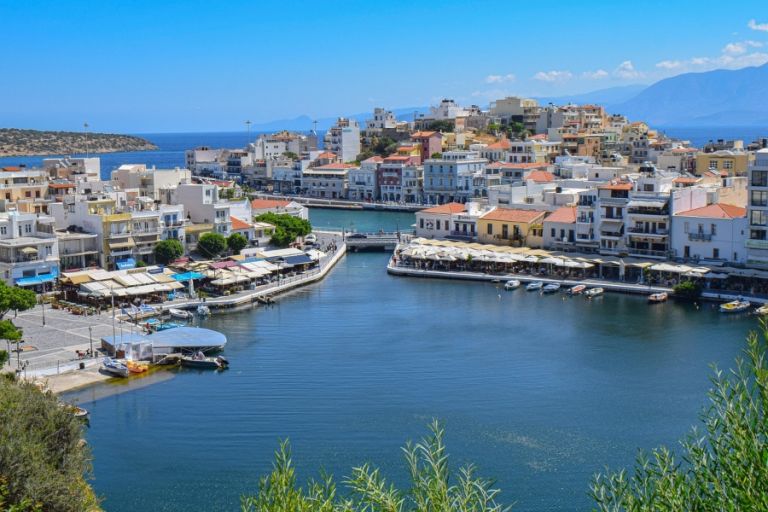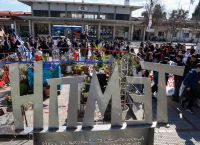A 6.1 magnitude earthquake struck off the coast of Crete

Πηγή Φωτογραφίας: Pixabay/A 6.1 magnitude earthquake struck off the coast of Crete
A 6.1 magnitude earthquake struck off the coast of Crete on Thursday, just over a week after an undersea tremor near the island that was felt as far away as Egypt. This event follows a series of earthquakes in February that prompted Santorini to declare a state of emergency due to unusual seismic activity. While Thursday’s quake triggered a tsunami warning and resulted in minor damage to Crete’s historic port, experts emphasize that there is no evidence linking these events or indicating an increased safety risk.
Rémy Bossu, Secretary-General of the European-Mediterranean Seismological Centre, told Greek City Times, “Greece is a seismically active region, and the hazard level hasn’t significantly increased.” He advises tourists to prepare for tremors, which can be unsettling, by learning safety protocols. “Most injuries come from falling objects indoors, so take cover under a table and avoid open areas. During a quake, collapsing tiles or balconies pose risks, so follow local authorities’ guidance,” Bossu explains.
The tsunami warning, automatically issued for undersea quakes reaching magnitude 6, is precautionary. “At this level, large tsunamis are unlikely, but avoid harbours due to potential whirlpools and stay off beaches to steer clear of minor sea level rises,” Bossu adds.
Vassilis Karastathis, director of the Geodynamic Institute of the National Observatory of Athens, told Greek City Times that the Crete quake, which occurred offshore, caused minimal damage and is likely to have a weak aftershock sequence. Residents reported waking to a loud roar and alarming tremors across the Aegean islands and parts of Athens.

In contrast, February’s “earthquake swarm” near Santorini had a volcanic component, prompting thousands to flee and authorities to implement measures against a potential eruption. Dr. Nikolaos Melis, Director of Research at the Institute of Geodynamics, noted that while Greece experiences frequent quakes due to its position near the African and Eurasian tectonic plates, catastrophic events are rare. “Greece has the highest seismic activity in Europe, alongside Turkey, but buildings and hotels adhere to strict codes to withstand tremors,” Melis said.
Despite a deadly 2021 earthquake in Crete, experts say predicting major earthquakes remains impossible. However, Greece’s infrastructure and preparedness mitigate risks. Tourists are urged to stay informed and follow local guidance without panic.
Earthquake Safety in Greece: Key Information for Tourists
Key Points:
- Recent Activity: A 6.1 magnitude earthquake struck off Crete on May 22, 2025, following a similar tremor a week earlier and February’s “earthquake swarm” in Santorini, which prompted a state of emergency.
- Tsunami Warning: Automatically triggered for magnitude 6 undersea quakes, but large tsunamis are unlikely. Avoid harbours and beaches to stay safe from whirlpools or minor sea level rises.
- Minimal Damage: The Crete quake caused minor damage to the historic port, with a weak aftershock sequence expected, per Vassilis Karastathis of the Geodynamic Institute.
- Santorini Context: February’s volcanic-linked tremors led to heightened preparedness for potential eruptions, with thousands evacuating.
- Expert Insights: Rémy Bossu and Dr. Nikolaos Melis emphasize Greece’s high seismic activity due to its tectonic location but note catastrophic quakes are rare. Buildings adhere to strict codes.
- Safety Tips:
- Indoors: Take cover under a table to avoid falling objects.
- Outdoors: Avoid areas prone to collapsing tiles or balconies.
- Follow local authorities’ instructions during tremors.
- Outlook: There is no evidence linking recent quakes or suggesting an imminent major earthquake. Tourists should stay informed but not panic.
Source:
Insights from Rémy Bossu (European-Mediterranean Seismological Centre) and Dr. Nikolaos Melis (National Observatory of Athens).
Source: pagenews.gr
Διαβάστε όλες τις τελευταίες Ειδήσεις από την Ελλάδα και τον Κόσμο






Το σχόλιο σας